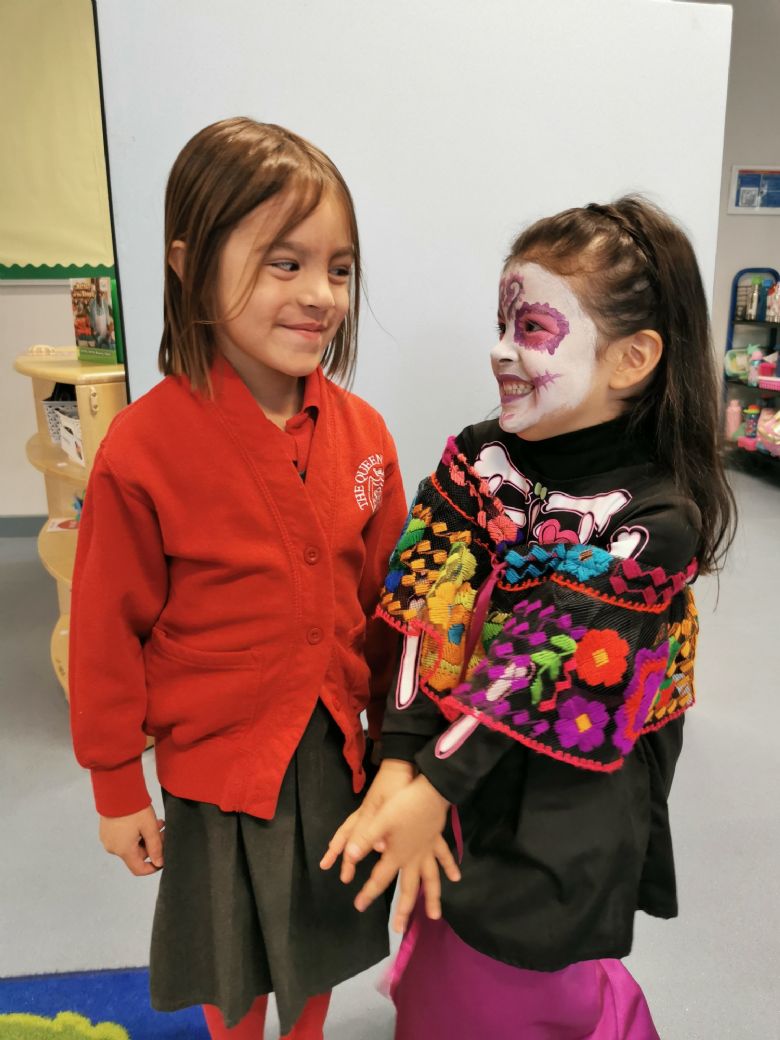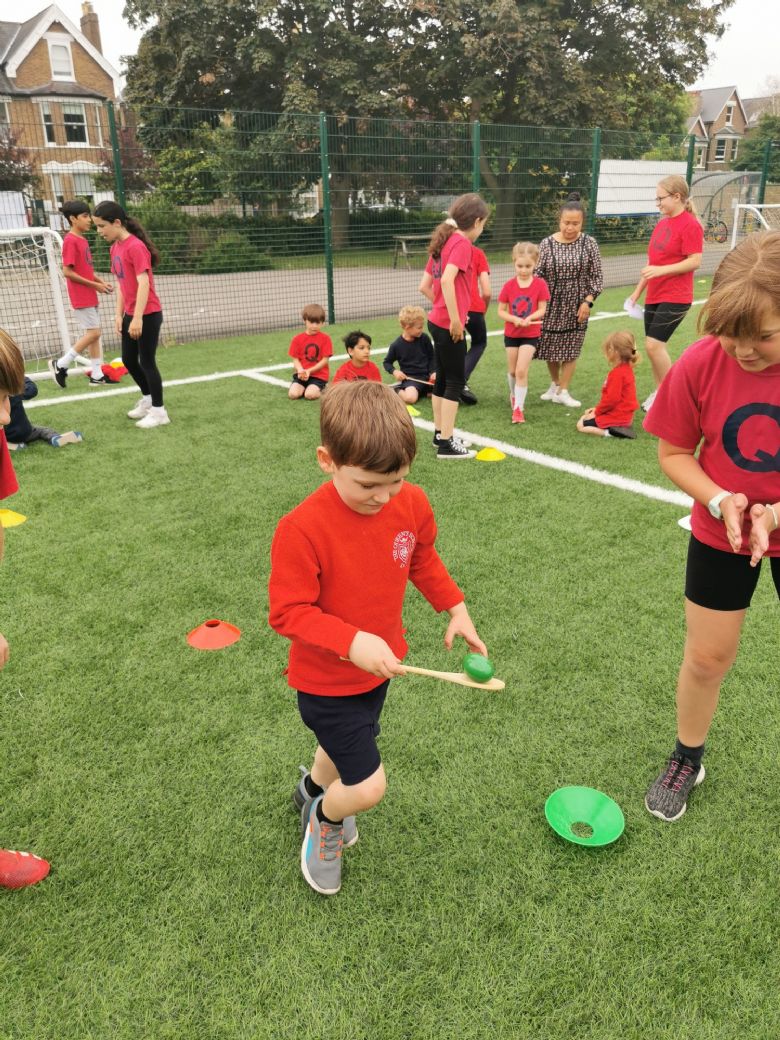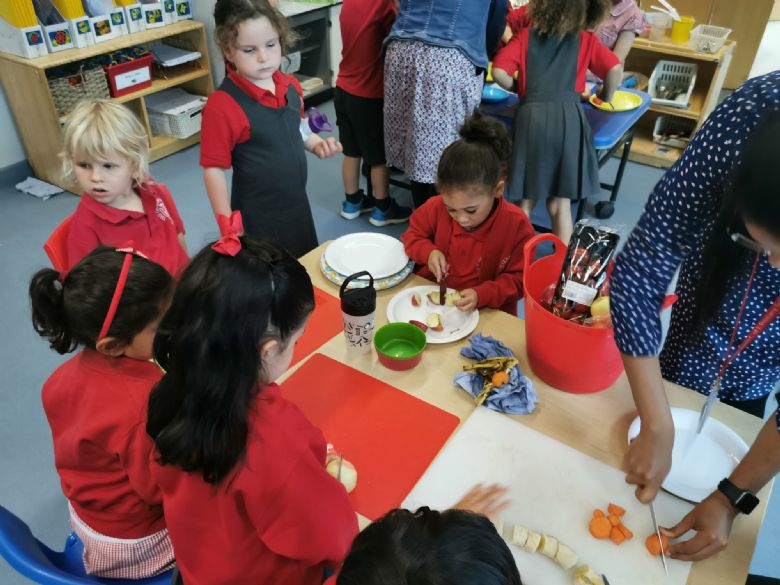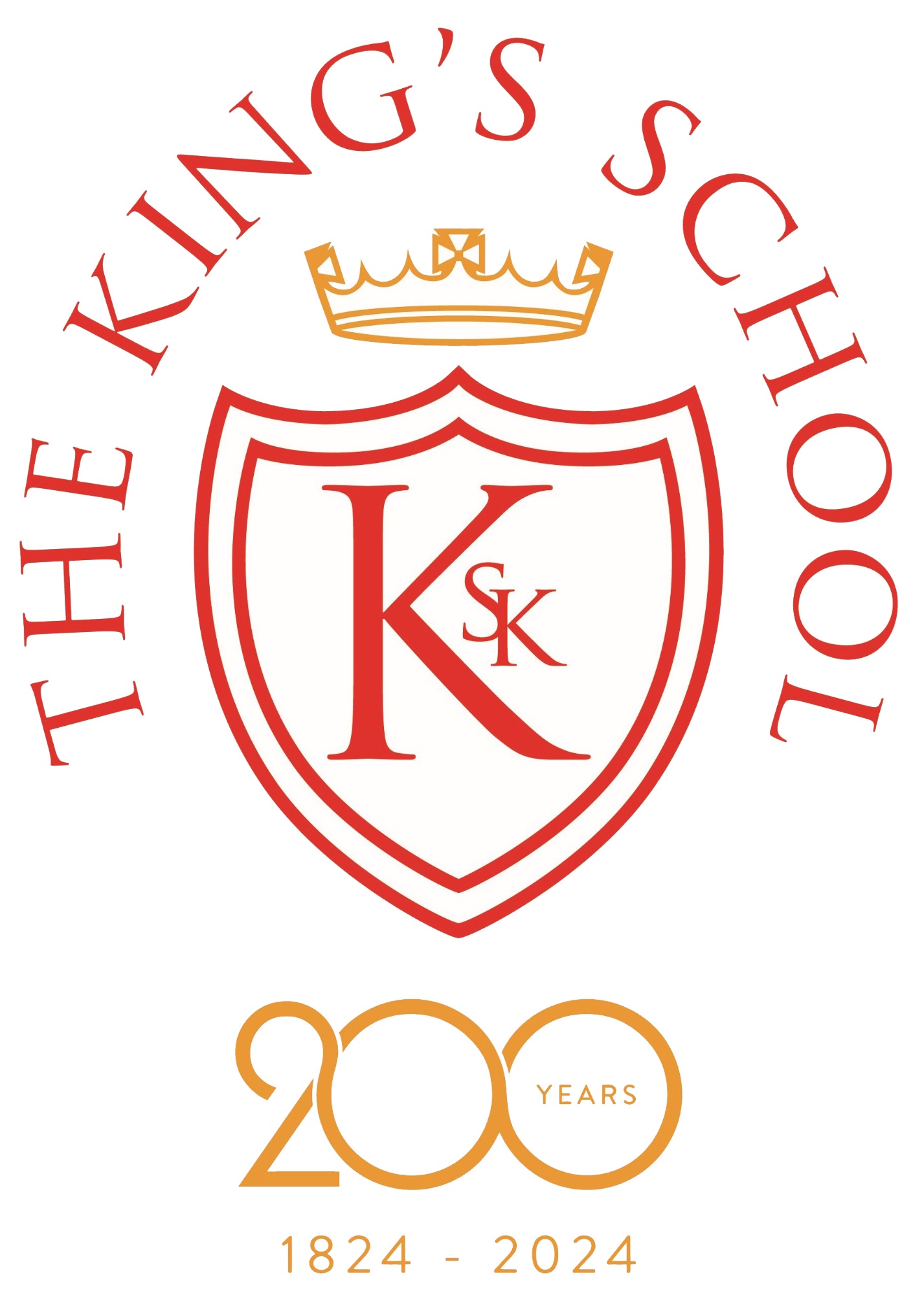Prime Areas of Learning
The Early Years Foundation Stage Framework has three Prime Areas which form the basis of each child's learning and provide them with fundamental life skills. In Reception, we believe in the development of the whole-child and our provision reflects this, encompassing all three aspects of the Prime Areas throughout the curriculum and our indoor and outdoor environments.
For more information on the skills and progression for PSHE and P.E, please see the documents attached below.
Communication and Language

The skills learnt through this area are at the forefront of our curriculum as they underpin all seven areas of learning and are essential for each child to be successful not only within school but through all walks of life. Our language-rich environments provide children with stimulating prompts, high quality texts, interesting artefacts and activities which require collaboration and conversation to ensure children are continuously acquiring new vocabulary and using language effectively.
There are two strands of Communication and Language, each having their own Early Learning Goals as follows;
Listening, Attention and Understanding
- Listen attentively and respond to what they hear with relevant questions, comments and actions when being read to and during whole class discussions and small group interactions.
- Make comments about what they have heard and ask questions to clarify their understanding.
- Hold conversation when engaged in back-and-forth exchanges with their teacher and peers.
Speaking
- Participate in small group, class and one-to-one discussions, offering their own ideas, using recently introduced vocabulary.
- Offer explanations for why things might happen, making use of recently introduced vocabulary from stories, non-fiction, rhymes and poems when appropriate.
- Express their ideas and feelings about their experiences using full sentences, including use of past, present and future tenses and making use of conjunctions, with modelling and support from their teacher.
Personal, Social and Emotional Development
Through daily interactions, books, discussion and reflection time; children in Reception explore their own emotions and how others feel and the reasons behind this. We use Zones of Regulation to recognise different emotions and behaviours, thinking about what zones are the best for learning and how to help ourselves regulate emotions such as anger, excitement and sadness as well as finding strategies to cope with these emotions such as drinking some water or counting to 10.
We also follow the Jigsaw scheme of learning for PSHE which encompasses many topics and skills in terms of feelings, self-care, building self-esteem & confidence and forming positive relationships.
 In Reception, children learn how to take turns, use their words to communicate and resolve problems and how to be a good friend. We instil a 'Growth Mindset' where children understand that perseverance and determination will allow them to reach their goals, they become independent and resourceful in their daily routine, play and learning. The Golden Rules and our school values are embedded throughout the year, as children gain a strong understanding of the expectations at Queen's and understand that the reasons for these rules are to keep them happy, safe and ready to learn.
In Reception, children learn how to take turns, use their words to communicate and resolve problems and how to be a good friend. We instil a 'Growth Mindset' where children understand that perseverance and determination will allow them to reach their goals, they become independent and resourceful in their daily routine, play and learning. The Golden Rules and our school values are embedded throughout the year, as children gain a strong understanding of the expectations at Queen's and understand that the reasons for these rules are to keep them happy, safe and ready to learn.
Children work towards the following Early Learning Goals:
Self-Regulation
- Show an understanding of their own feelings and those of others, and begin to regulate their behaviour accordingly;
- Set and work towards simple goals, being able to wait for what they want and control their immediate impulses when appropriate;
- Give focused attention to what the teacher says, responding appropriately even when engaged in activity, and show an ability to follow instructions involving several ideas or actions.
Managing Self
- Be confident to try new activities and show independence, resilience and perseverance in the face of challenge;
- Explain the reasons for rules, know right from wrong and try to behave accordingly;
- Manage their own basic hygiene and personal needs, including dressing, going to the toilet and understanding the importance of healthy food choices.
Building Relationships
- Work and play cooperatively and take turns with others;
- Form positive attachments to adults and friendships with peers;
- Show sensitivity to their own and to others’ needs.
Physical Development
Every day in the Early Years consists of energetic activities and opportunities for children to develop their agility, promoting an active lifestyle which will lead children to lead happy, healthy lives. There are countless benefits on children's physical and mental health and well-being that arise from gross motor activities, children are able to focus more on their learning with frequent movement breaks and are more engaged when learning is active. In Reception, children have a P.E lesson with a specialist teacher once a week when they learn and build upon various skills such as agility, co-ordination, balance, spatial awareness and core strength.
 The outdoor environment offers children opportunities to develop these skills through the use of things like obstacle courses, climbing walls and balance bikes and children can access these daily. Fine motor skills are focused upon both inside and out, resources are made available as they progress from using large paintbrushes to thin ones or tongs to tweezers. Children also start the day with a fine motor activity, where they may be developing their cutting or threading skills and once they are ready, their pencil control. Fine motor skills play a large role in the development of early Literacy skills as strong hand-eye co-ordination and good control over small tools are essential for writing.
The outdoor environment offers children opportunities to develop these skills through the use of things like obstacle courses, climbing walls and balance bikes and children can access these daily. Fine motor skills are focused upon both inside and out, resources are made available as they progress from using large paintbrushes to thin ones or tongs to tweezers. Children also start the day with a fine motor activity, where they may be developing their cutting or threading skills and once they are ready, their pencil control. Fine motor skills play a large role in the development of early Literacy skills as strong hand-eye co-ordination and good control over small tools are essential for writing.
The children work towards Early Learning Goals for both Gross and Fine Motor Skills;
Gross Motor Skills
- Negotiate space and obstacles safely, with consideration for themselves and others.
- Demonstrate strength, balance and coordination when playing.
- Move energetically, such as running, jumping, dancing, hopping, skipping and climbing.
Fine Motor Skills
- Hold a pencil effectively in preparation for fluent writing - using the tripod grip in almost all cases.
- Use a range of small tools, including scissors, paint brushes and cutlery.
- Begin to show accuracy and care when drawing.
